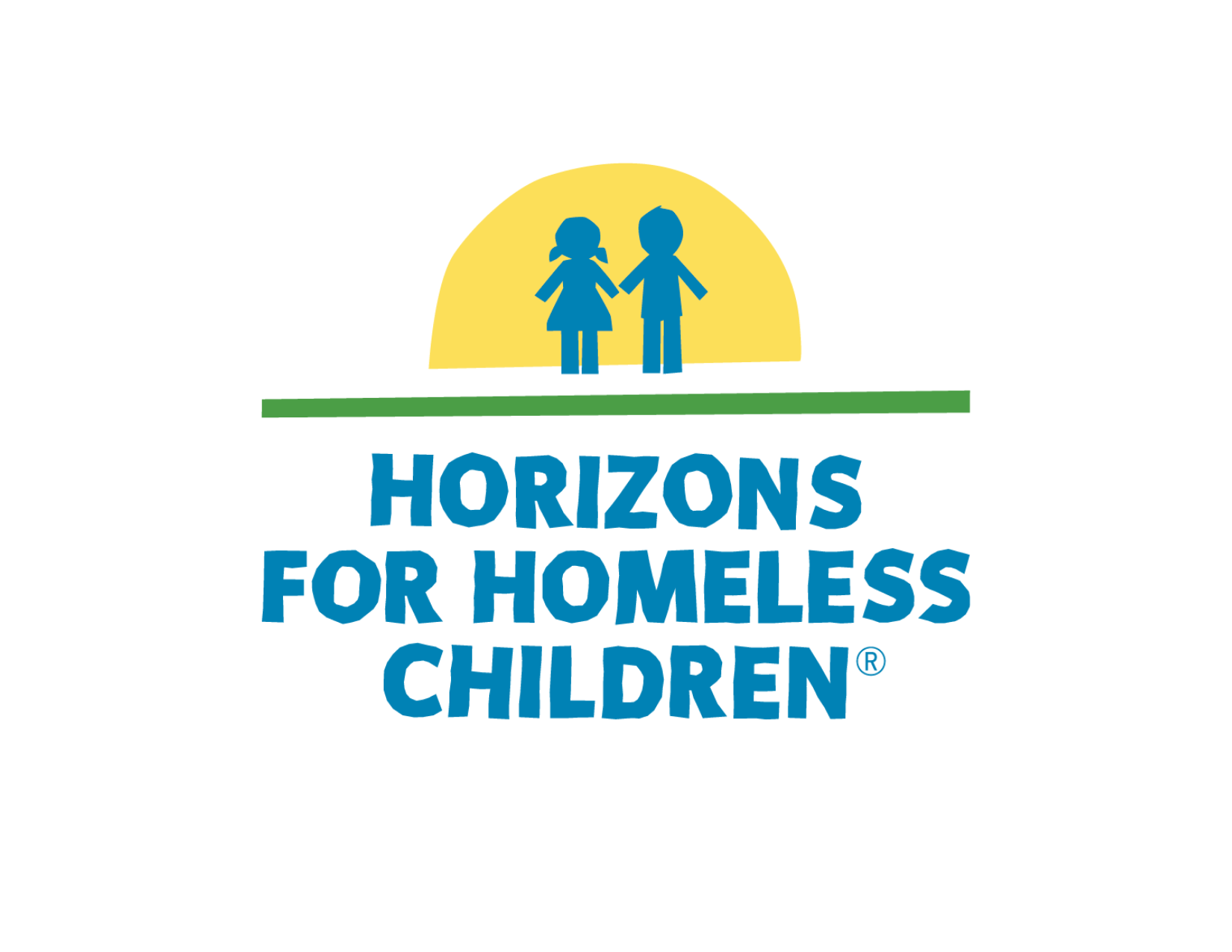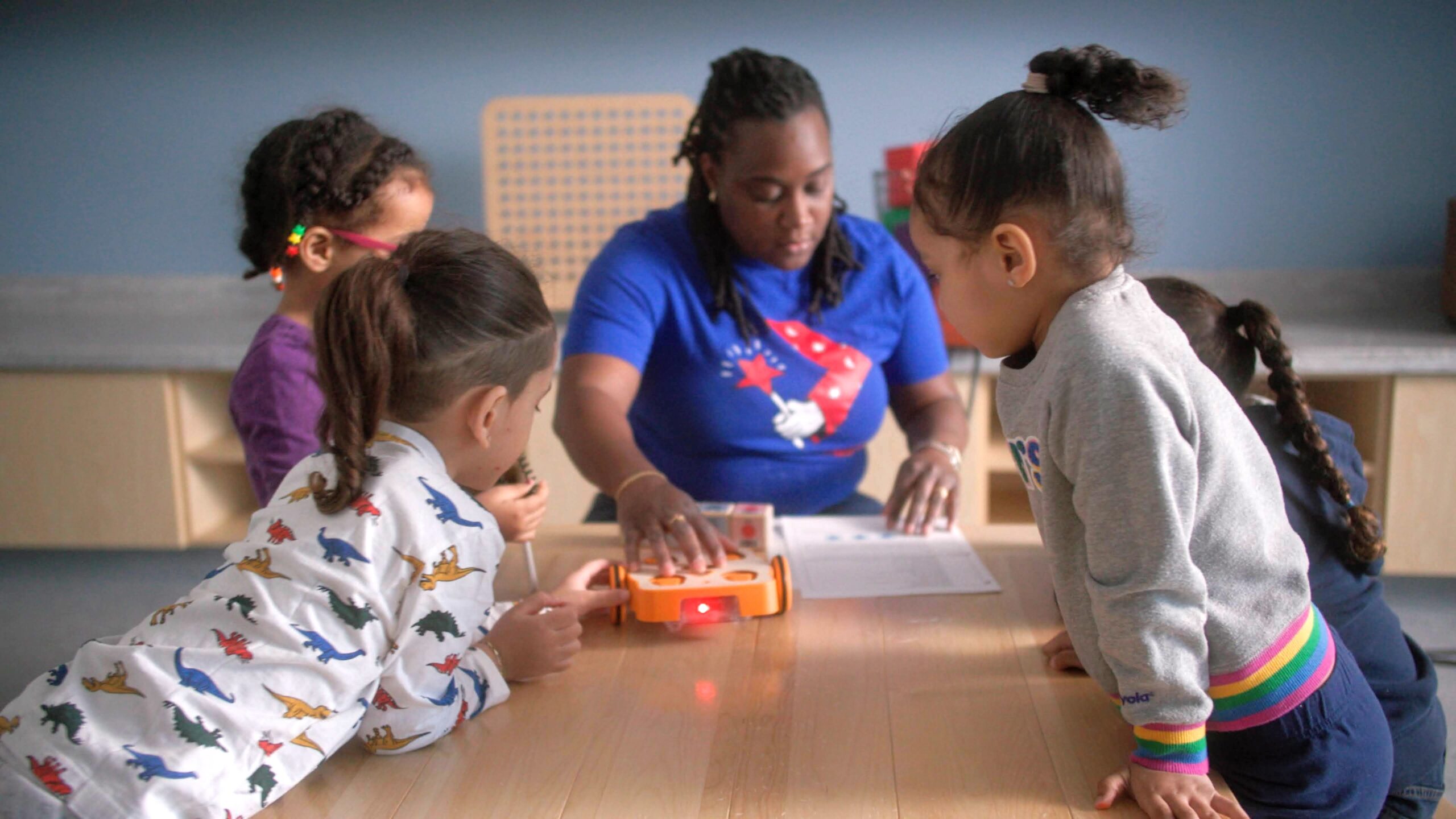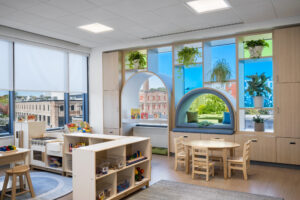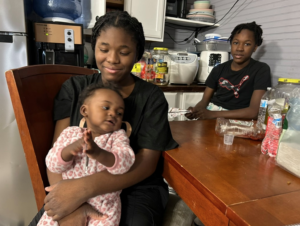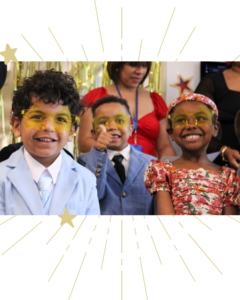Building, Coding, Creating and Exploring with KIBO
- by hhc_admin_1
Since the opening of the Edgerley Family Horizons Center, which includes a dedicated STEM lab, Horizons has continued to transform its STEM curriculum. “Changing the trajectory of children’s lives begins with building dreams and opening children’s minds to opportunities they may not see in their immediate surroundings,” said Kate Barrand, CEO of Horizons for Homeless Children. “Children living in poverty can dream about a career as an astronaut, computer programmer, scientist or inventor when they experience engaging STEM curriculum in school.”
Young children living in poverty or experiencing homelessness can benefit from the early introduction of science and technology lessons or equipment. To make this type of learning accessible, Horizons has tapped into the expertise of top tier organizations leading the way in creating STEM programs for early education. One such partnership is with the DevTech Research Group at Boston College which has brought in and now studied the impact of the KIBO robot with Horizons’ students and teachers. KIBO is a hands-on robot that introduces young kids to coding and robotics – all in a fun screen-free and creative way. It was created by Prof. Marina Bers, director of the DevTech research group and is commercialized by KinderLab Robotics, a Massachusetts-based firm dedicated to improving STEM education for young children. Bers co-founded KinderLab with funding from the National Science Foundation, to make KIBO available worldwide. KIBO is based on 20+ years of research by the DevTech Group, that was first at Tufts University and recently moved to Boston College.
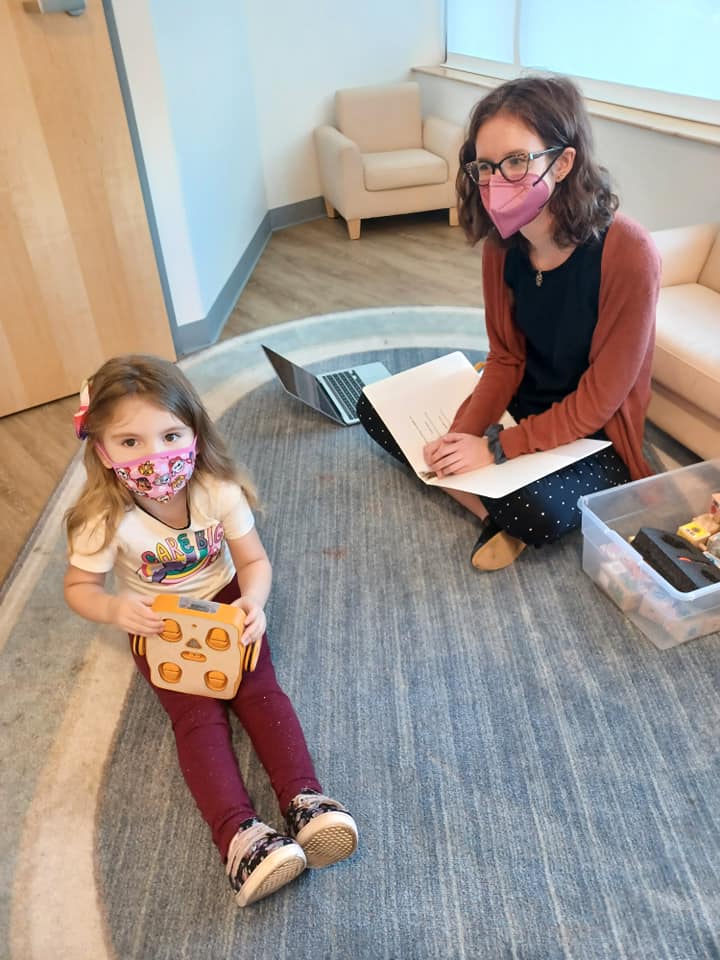
Researching the Impact of KIBO at Horizons
At the beginning of 2021 Horizons partnered with the DevTech Research Group at Boston College to introduce a new developmentally appropriate robotics and coding curriculum into the existing STEM program at Horizons.
Dr. Marina Umaschi Bers and the DevTech Research Group developed the Coding as Another Language (CAL) framework to introduce computer science in an early education setting. This framework uses coding as another language and form of literacy in which children can connect with others, express themselves, and consider the world and their roles in it in a new way.
During the year, graduate student Tess Levinson researched the progress of the students and teachers as they worked through the curriculum.
Progress Made by Students and Teachers
The research goals focused both on student and teacher progress.
The program started with professional development for Horizons’ teachers so they could better understand KIBO, what it aimed to teach, and how it could be included in student learning. Teachers were surveyed at the beginning and end of the training sessions. Results showed a 47% increase in their self-reported understanding of the curriculum and confidence in facilitating its implementation in the classroom. The curriculum brought coding and robotics to students using storytelling, literacy, and music – things Horizons students in preschool and UPK classrooms are familiar with already.
Students who remained enrolled through the entire period were tested at the beginning and then at the end of the curriculum and results showed that, for many students, their knowledge of coding increased. According to the research report, after participating in the curriculum, 17 of the 35 students stayed in the Pre-Coding stage, but 18 students improved one or two stages, with nine students moving to the Emergent stage and nine students moving to the Coding and Decoding stage.
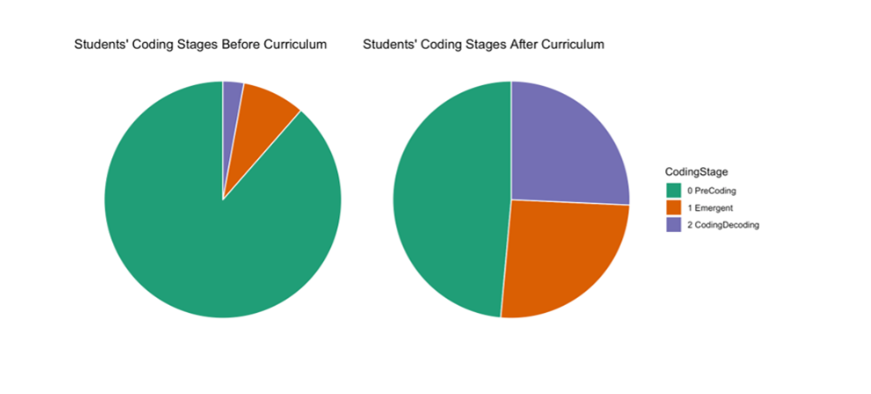
Teacher outcomes also demonstrated growth as well. The results show the initial training allowed teachers to develop confidence and self-efficacy with the computer science and robotics curriculums. In a survey, teachers we asked to rate their ability to do the following on a scale from zero to five: teach KIBO, explain basic programming concepts, help students debug programs, and integrate coding into existing classroom curricula. The table below illustrates the teacher’s level of understanding before and after professional development.
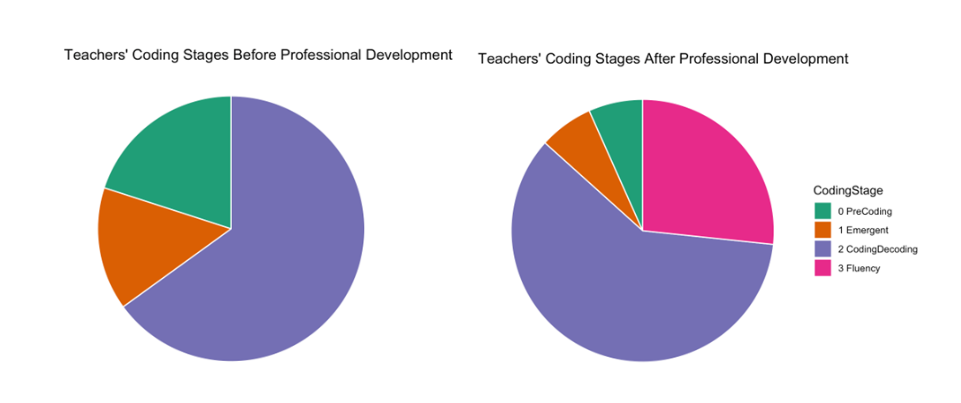
Learning Applies Beyond the STEM Lab
Overall, teachers found that students were absorbing lessons learned through the KIBO curriculum both directly and indirectly. Teachers reported that students started relating the sequencing they learned in the KIBO curriculum to their morning routine. Just like they would instruct the KIBO robot to move forward then turn around, they would arrive at school, wash their hands, and sit down for breakfast. KIBO helped them organize their thinking and relate to the order in which they did tasks.
Many teachers reported their excitement around student collaboration. They found with KIBO robots, more students were likely to work together and work patiently. One teacher mentioned, “Children who typically would not work with peers and would rather work solo, changed while playing with KIBO. They began to express how they wanted to work together, and they began solving problems together.”
Students and teachers have also enjoyed sharing KIBO with their families. Teachers host multiple STEM themed events throughout the year where families are invited into the classroom. Most notably, was the STEM fair in which KIBO was heavily featured. Teachers brought art and technology together, having children and families create figures to put on the KIBO and make them dance around!
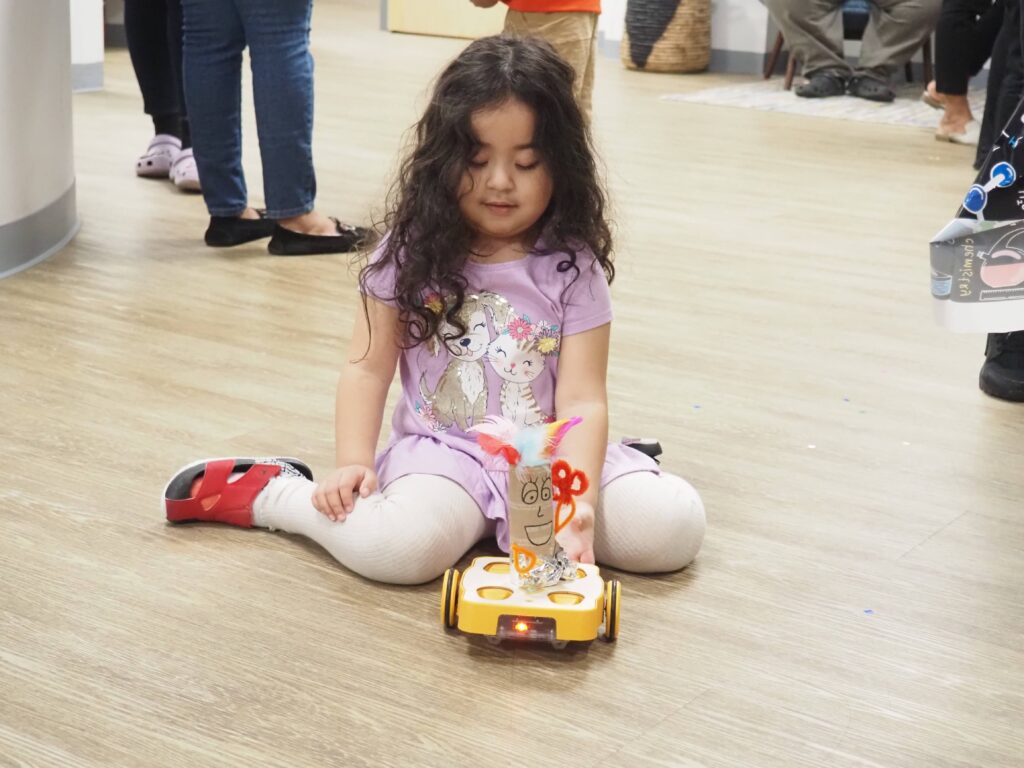
KIBO Will Continue to Be an Integral Part of STEAM Programming
Teachers initially felt that coding was an advanced project for preschool students, especially since it was a subject many teachers did not comprehensively understand themselves. But after the initial professional development sessions, their confidence and understanding grew. Now, coding is a regular part of the curriculum.
Professional development continues for teachers, several of whom attended a recent workshop with Dr. Marina Umaschi Bers at Boston College where they continued to learn about the KIBO curriculum and how it can be extended into the classroom. In addition, all of the curriculum materials, the evaluation instruments and the professional development for teachers is being translated into Spanish and this Fall a Spanish-speaking robotics experience will be launched.
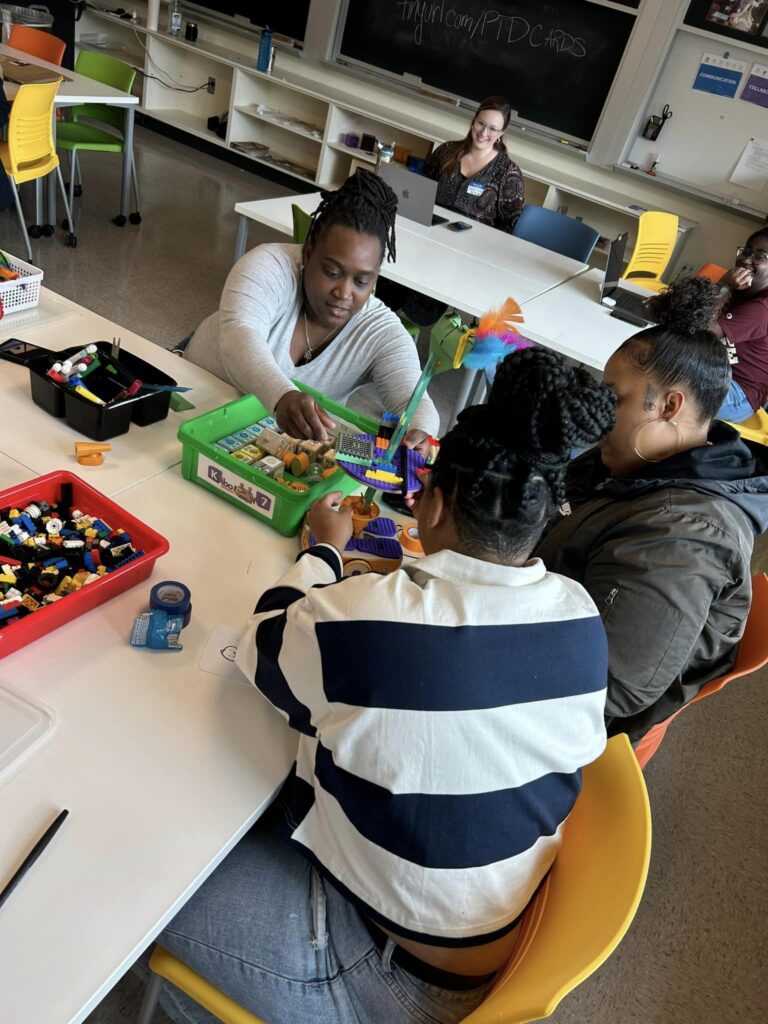
There are opportunities for further growth of KIBO in the future. Language learning is critical in Horizons’ classrooms as 43% of families report Spanish is their first language. The report concluded that some of the classroom teachers were able to adapt the curriculum and translate for the Spanish speaking students but, a formalized curriculum developed in Spanish and other languages could provide further enrichment of the program.
“We are starting to see the promise of KIBO coming to fruition at Horizons. Children are becoming critical thinkers who can draw their own conclusions, go through the steps of the engineering design process, and learn to communicate and collaborate, leading to greater achievement and self-esteem. That process is particularly important for the population of children we serve,” said Amanda Martinez, Education Manager at Horizons.
Read the full research report, here. Download a copy of this article, here.
